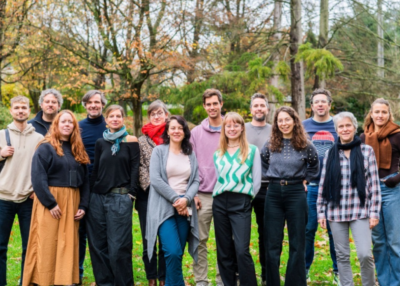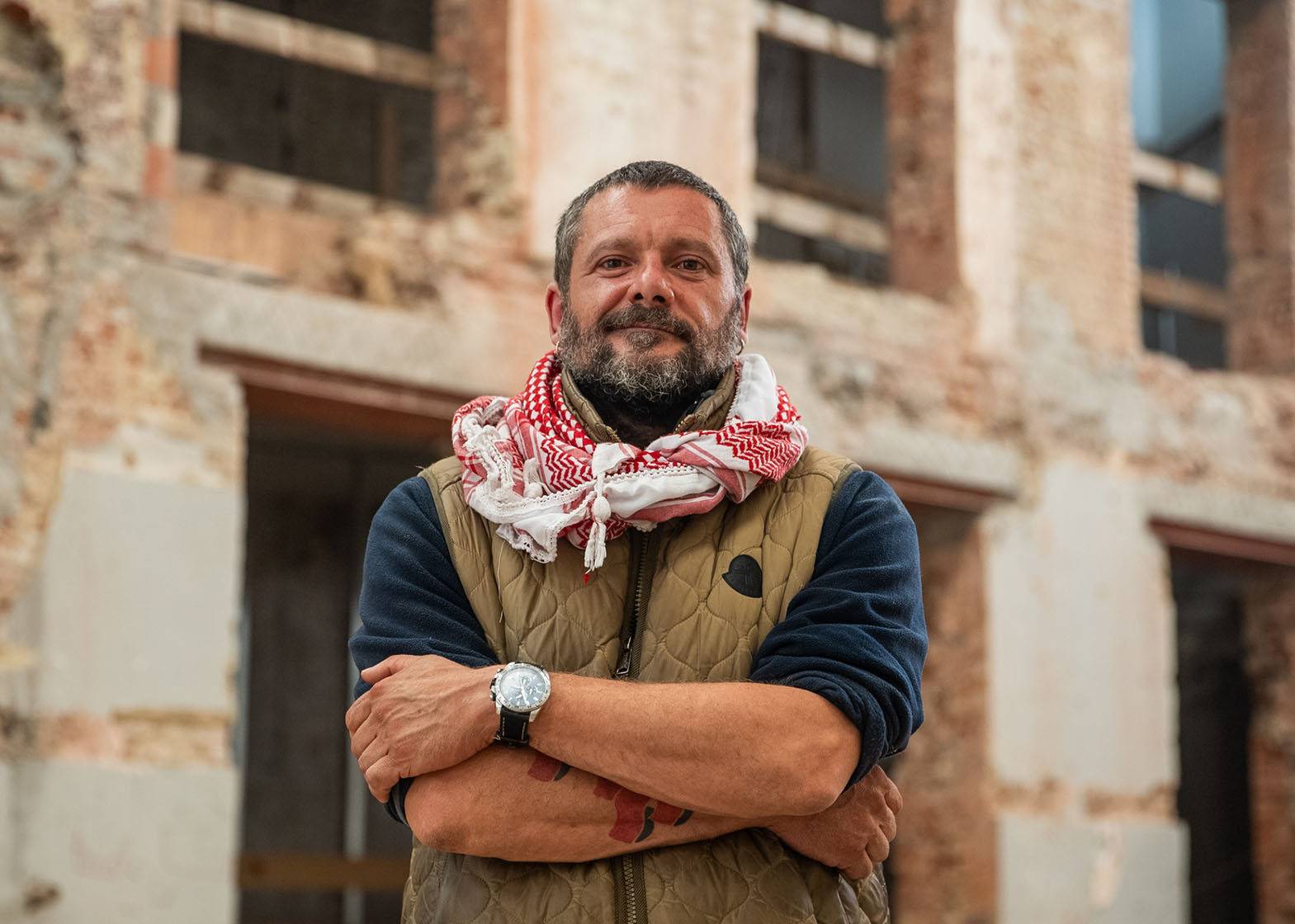
Sustainable food production: produce local, dream global
Air freight, container ships, overproduction, pollution: here are some deleterious dimensions of export… But there are other aspects, much more beneficial, that we generally don’t think of. Let us tell you the story of a glass jar of organic chutney, a jar of organic nut butter and a bottle of locally-produced fruit juice, making export rhyme with durability and profitability.
Brussels is beautiful. Brussels is daring. But Brussels is also small. To help her grow, her craftsmanship must eventually conquer new territories. One solution to such a problem: export.
But don’t get it twisted, small-scale producers can think big! As a matter of fact, local production can sustainably ‘go international’. Nobody knows that better than Pipaillon, BUDDY BUDDY and FROUI.
Here are three local food producers making Brussels full of flavour and tenaciously fighting against mass production.
Food production, deliciously conducive to export activities in neighbouring countries
Brussels food production, as well as numerous other sectors, was severely hit by the COVID-19 health crisis. “Partly because most of our producers offer high-quality products and thus, the economic crisis had a dramatic impact on their sales,” explains Thomas Dupan, Area Manager for Europe at hub.brussels. “Another reason is that, in the food production sector, in-person meetings are critical to make a sale. Clients want to see, touch, smell and taste your products.”
Unfortunately, producers had been unable to prospect in-person for almost 2 years.
The growing success of food fairs
During summer 2020, hub.brussels and Credendo conducted a survey and interviewed 763 export companies located in Brussels. Results showed that 28% of them regarded food production as one of the most conducive sectors for export, after pharmaceutical industry, biotechnology, chemistry and building industry.
Such a point of view is progressively apparent on the international scene. Dupan confirms: “Since a few years now, our local companies have been increasingly interested in going abroad to attend food fairs.”
However, as food fairs do not currently have enough space to welcome every company willing to attend, hub.brussels had to establish a selection process based on weighted criteria, partly to give priority to sustainabe and soon-to-be sustainable companies: producing locally, impacting low-level jobs, using shelterd workshops…
Homemade, from the first to the last step (of the supply chain)
As the world is increasingly becoming aware of the necessity to ensure responsible consumption, a new type of companies is breaking into the global food market: unlike industrial food companies, they value a local and ethical approach when choosing raw material as well as producing, transforming and distributing their products.
Their founders generally work on all fronts; and are proud of this choice.
“Our secret? The quality of our products and the flexibility in our sevices. We are and remain craftsmen who steadily improve their work after every feedback of challenging clients,” says Catherine Bodson, founder of Pipaillon. Bodson started her business in 2014, in a small house located in Brussels. Since then, her organic cannery has been delighting French, Luxembourger, Austrian, Germand and Korean taste buds.
Same story for FROUI: the two founders of this new start-up, based in Watermael-Boitsfort, squeeze and bottle their sugar-free home-made juice themselves. Their products proved to be a great success in France, Germany and Monaco.
BUDDY BUDDY, based in Etterbeek, follows a similar pattern. The founders handle every step of their nut butter production themselves, from roasting to canning. “Our nut butter is entirely handmade. We produce it locally, only 20 jars at a time. After being studiously roasted, our nuts are immediatly crushed to obtain a perfect flavour and a unique texture. »
Their nut butter won the heart of people in Luxembourg, Holland, France, Germany, Ireland, England, Switzerland and Spain.
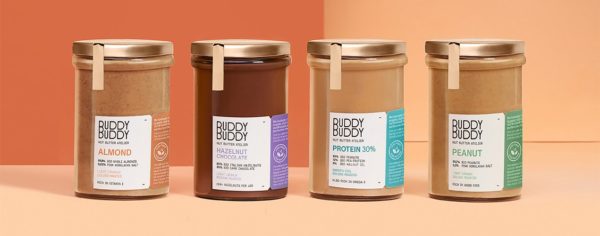
Two main ingredients: local production and organic products
“Brussels food supply is mainly organic and innovative,” explains Thomas Dupan, “this promising sector is exactly what our companies are reaching for.”
Jeffrey and Laurent, founders of FROUI, use glass bottles and tetras with sugar cane caps rather than the usual plastic options. They chose an ethical and organic production over important profits and business growth. Cherry on top: their fruits come from organic farming.
In the case of Pipaillon, ranges of jams, tapenades, chutneys and lemon confits are canned in a glass jar. They are produced locally and in season, harvests are immediatly taken care of, by hand. “We work with the best organic ingredients, coming directly from our producing partners.”
Concerning Buddy Buddy, nut producers are thouroughly selected based on their geographic position, whether their harvest is organic and sustainable and the quality of this harvest. “We only purchase high-quality organic nuts, directly from nut farms if possible, and do not import them from the other side of the globe.”
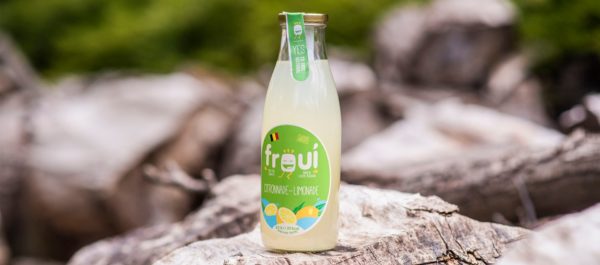
Food fairs as a global showcase
Food fairs are essential to make sales, find new clients or retain existing clients. And nothing compares to an in-person experience, even if virtual events organized by hub.brussels and partners were much appreciated during the COVID-19 health crisis.
eat! BRUSSELS, drink! BORDEAUX, Biofach, Speciality & Fine Food Fair: some major events our local companies would not miss for the world this year.
Just back from the Anuga Food Expo in Cologne, numerous companies are already packing their bags to go and attend the Free From Functional Food Expo taking place in Amsterdam.
“Sometimes, food fairs offer considerable opportunities,” says Catherine Bodson, founder of Pipaillon. “By attending such events – which I already did several times -, you get the chance to exchange with potential clients, convince them to taste and add your products to their product portfolio.“*
“In Europe, ‘abroad’ is not so ‘abroad’,” adds Julien Gaucherot, founder of Buddy Buddy . “When you export your products to France, Holland, Germany, you do not have to pay any customs duty, nor any export or import duty, making life easier for food producers.”*
Pascal Smet, Secretary of State responsible of European and International Relations concludes: “Creating a vast army of SMEs surviving and developing in Brussels and abroad. That, is the future of Brussels.”*
Want to please palates all around the world like Catherine, Julien, Matt, Jeffrey and Laurent?
- Discover our service “start to export“
- Attend our “Export Talks“ webinars to become a seasoned exporter!
- Contact our Economic and Commercial Attaches accross the world
Discover other stories
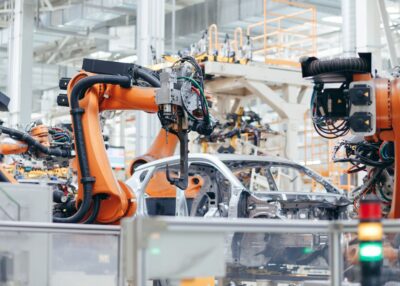
After Audi: Brussels foreign trade in the first half of 2025
Posted on 28/01/2026